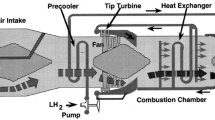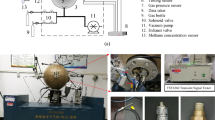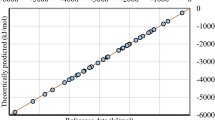Abstract
EVIDENCE has been accumulating in my laboratory that combustion is in general far from being complete at the moment of maximum pressure in closed vessel gaseous explosions even under the best experimental conditions, and that consequently specific heat values for gases at high temperatures determined by the explosion method are much larger than the true values. Much of this evidence has rested upon certain assumptions, such, for example, as that the specific heats of various diatomic gases constituting the diluents in explosive mixtures are practically the same over any given temperature range.1 But recently Messrs. J. R. Brown and A. H. El Din have completed a carefully conducted and extended series of experiments which seem to offer conclusive proof that incomplete combustion at the moment of attainment of maximum pressure in closed vessel explosions is generally so large as to make the explosion method as usually employed unreliable for specific heat determinations.
This is a preview of subscription content, access via your institution
Access options
Subscribe to this journal
Receive 51 print issues and online access
$199.00 per year
only $3.90 per issue
Buy this article
- Purchase on SpringerLink
- Instant access to full article PDF
Prices may be subject to local taxes which are calculated during checkout
Similar content being viewed by others
References
Thorp, Phil. Mag., Dec. 1929, p. 829.
Author information
Authors and Affiliations
Rights and permissions
About this article
Cite this article
DAVID, W. Specific Heat of Gases at High Temperatures. Nature 129, 942 (1932). https://doi.org/10.1038/129942a0
Issue date:
DOI: https://doi.org/10.1038/129942a0
This article is cited by
-
Spezifische Wärme technischer Gase und Dämpfe bei höheren Temperaturen
Forschung auf dem Gebiete des Ingenieurwesens (1934)



